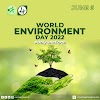No. Not that. I mean have you eaten today? If you are an assistant parent— first child, you probably cooked for the whole family today. Since we are talking about food and cooking, let's talk about how this daily activity affects Man–us, and the Environment.
Cooking is Vital in every household and is done almost every day, hence it is important to understand what clean cooking is. I know by mentioning clean cooking, we have already conditioned our minds to scrub pots, clean dark surfaces, and keep the cooking place free from household pests.
Clean cooking in this context refers to being free from pollution and adapting to hygienic, eco-friendly processes. Cooking involves using energy to prepare food for consumption. This energy could be heat, electrical, or even solar. Thus, Clean Cooking is the use of cleaner fuel, sustainable energy, and clean cooking system strategies for cooking activities.
These fuels are less hazardous to the environment. Example of such clean fuel includes Solar, Biogas, Natural gas, Liquified petroleum gas(LPG); a mixture of hydrocarbons that burn with very little emissions of pollutive gases, and alcoholic fuel. These clean cooking fuels are modern, have low emissions, are carbon-free, and reduce all cooking household pollution. In one word, these methods are SUSTAINABLE.
I hate to break it to you but, if you are not adhering to the things mentioned above, you are not practising clean cooking. Another item on your list of unsustainable actions. You are not alone though. According to WHO, over 2.4 billion people in the world are also sitting at this unsustainable table.
Clean cooking is not just important in lessening energy consumption and preventing deforestation. It is also another way of combating climate change by reducing air pollution and greenhouse gas emissions. And my favourite part; is it saves time and is less stressful. Compare preparing your meal with cooking gas against charcoal.
However, for people living in typical rural areas, the use of wood and charcoal stove is a daily occurrence. This implies that before breakfast and dinner are made every day, one would have to get wood or charcoal because they are cheap, portable, and easy to get. This makes clean cooking almost impossible in rural and suburban areas. The Urban areas are not exclusive. With the consistent increase in cooking gas prices –the fuel which served as the clean alternative for many, households in urban areas returned to the use of traditional biomass like coal and firewood.
Unsurprisingly, data from the National Bureau of statistics records that about 68.3% of Nigerian households still use solid fuel.
"Considering these influencing factors, why bother about clean cooking?"
This is a valid question to ask, but before we exclusively relieve ourselves of every responsibility, we must go through what has been happening as a result of the lack of clean cooking.
Join us this month as we discuss relevant issues surrounding the topic of Clean cooking.
— Henrietta Awah











.jpeg)






0 Comments